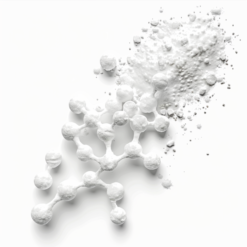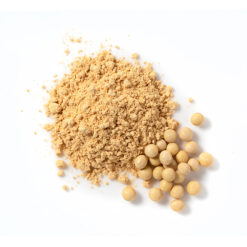Phospholipids
Phospholipids are a group of lipids that play an important role in the structure and function of cells. They are the main component of cell membranes, forming a bilayer structure that separates the interior of the cell from its surroundings while allowing the exchange of substances. Phospholipids are amphipathic, meaning they have a hydrophilic (water-attracting) head and a hydrophobic (water-repelling) tail, which allows them to form stable biological membranes.
Applications of Phospholipids
Phospholipids perform many essential functions in the body. They form the structure of cell membranes, ensuring their integrity and selective permeability, and also participate in the transport of lipids and proteins across cell membranes, as well as in intracellular signal transmission.
In the food and cosmetics industries, phospholipids are used as emulsifiers, stabilizing mixtures of oil and water.
In dietary supplements, they are popular ingredients that support brain health, memory, and cognitive functions.
In the pharmaceutical industry, they are used in the production of liposomes, which serve as drug carriers, increasing their bioavailability and effectiveness.
Additives for Dietary Supplements
Raw Materials for Production
Raw Materials for Production
Raw Materials for Production






